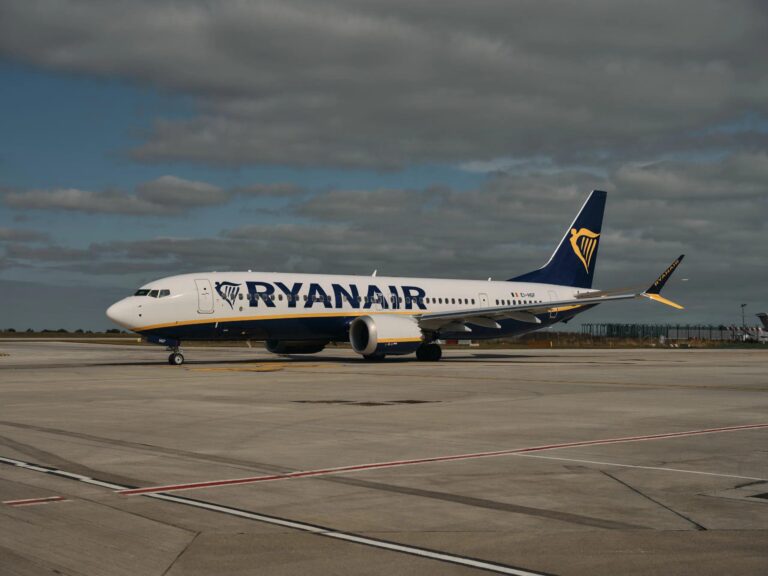Ryanair has issued a stark warning about the long-term consequences of the Russia-Ukraine conflict on the European aviation industry. The budget airline cautioned that disruptions caused by airspace closures, increased fuel costs, and geopolitical uncertainties are set to affect the sector for years to come. As airlines across the continent grapple with the fallout, Ryanair’s alert underscores the broader challenges facing Europe’s air travel recovery in a protracted period of instability.
Ryanair Highlights Long Term Disruptions in European Air Travel Due to Russia-Ukraine Conflict
Ryanair’s leadership has issued a stark warning about the prolonged disruptions in European aviation, attributing the turbulence to the ongoing Russia-Ukraine conflict. The war’s repercussions have severely constrained airspace access over Eastern Europe, leading to increased flight durations, elevated operational costs, and a reshaping of traditional routing patterns across the continent. The airline emphasized that these conditions are unlikely to normalize in the near future, signaling sustained volatility that could impact airline profitability and passenger experience alike.
Key challenges highlighted by Ryanair include:
- Extended flight times causing higher fuel consumption and carbon emissions
- Rerouting complexities requiring meticulous logistical planning
- Unpredictable regulatory environments affecting flight scheduling
- Potential for increased tariffs and fees due to altered air traffic management
| Impact Area | Effect | Estimated Duration |
|---|---|---|
| Airspace Restrictions | Flight diversions & delays | 3+ years |
| Fuel Costs | Up to 20% increase | Ongoing |
| Operational Complexity | Increased scheduling challenges | Long term |
Airline Industry Faces Rising Costs and Route Limitations Amid Geopolitical Tensions
European carriers are grappling with escalating operational expenses as geopolitical strife lingers in Eastern Europe. The conflict between Russia and Ukraine continues to force airlines to reroute flights, avoid certain airspaces, and face ballooning fuel and insurance costs. Ryanair executives caution that these challenges are unlikely to be resolved in the near term, signaling a period of sustained financial strain and logistical headaches for the continent’s aviation sector.
Key impacts highlighted include:
- Increased fuel consumption: Longer flight paths to circumvent restricted airspace have notably driven up fuel usage.
- Heightened insurance premiums: Risk factors related to operating near conflict zones have pushed insurers to hike rates.
- Reduced route flexibility: Airlines face limited options, affecting scheduling and network efficiency.
| Cost Factor | Pre-Conflict Level | Post-Conflict Increase |
|---|---|---|
| Average Flight Distance (km) | 1,100 | 1,350 (+23%) |
| Fuel Costs per Flight (€) | 5,000 | 6,250 (+25%) |
| Insurance Premiums per Flight (€) | 800 | 1,400 (+75%) |
Calls for Coordinated Policy Response to Mitigate Impact on Aviation Recovery and Passenger Safety
Industry leaders are urging European governments and aviation regulators to adopt a unified and strategic policy framework aimed at offsetting the long-term disruptions triggered by the Russia-Ukraine conflict. Stakeholders emphasize the need for enhanced cooperation to stabilize the sector, which faces challenges ranging from restricted airspace and fluctuating fuel costs to diminished passenger confidence. Without decisive policy measures, experts warn that recovery could be slowed by years, negatively affecting job security and market competitiveness across the continent.
Key areas for coordinated action include:
- Airspace management: Establishing shared protocols to optimize flight routes and reduce delays.
- Passenger safety standards: Reinforcing security measures amid geopolitical tensions.
- Financial support: Developing targeted aid packages for airlines facing sustained operational stress.
- Fuel price regulation: Exploring mechanisms to buffer volatile energy costs impacting ticket prices.
| Challenge | Proposed Solution | Expected Outcome |
|---|---|---|
| Airspace restrictions | Multilateral air route agreements | Improved operational efficiency |
| Passenger confidence drops | Enhanced health and safety protocols | Increased traveler trust |
| Soaring fuel costs | Subsidies and price stabilization | More stable ticket pricing |
Key Takeaways
As the Russia-Ukraine conflict continues to reshape the geopolitical landscape, Ryanair’s warning underscores the enduring challenges facing European aviation. With disrupted routes, increased costs, and heightened uncertainties, industry stakeholders must brace for a prolonged period of adjustment. The war’s ripple effects are likely to influence airlines, regulators, and travelers alike, signaling a new era of operational and strategic complexity for Europe’s skies.




